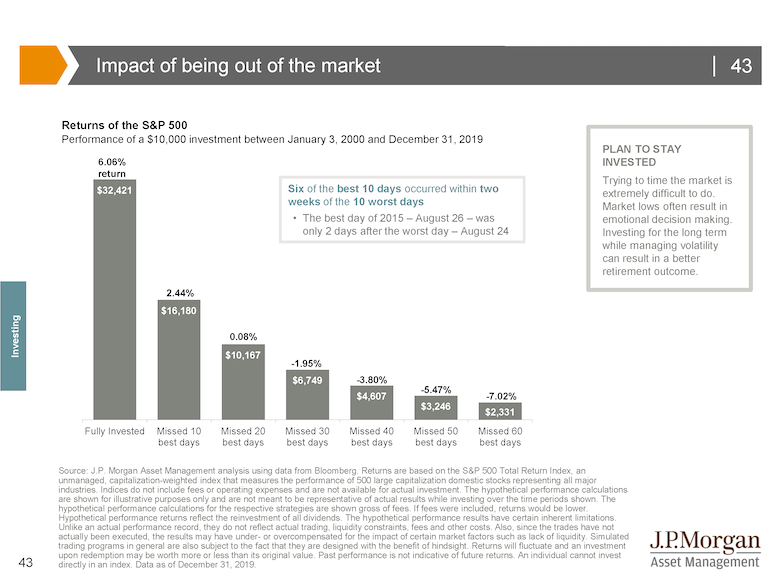Four Investor Missteps to Avoid in 2021

It’s the time of year when 2020 financial statements and investment tax forms hit the mailboxes. These documents can tell stories of great financial success or terrible financial failure. However, once tears of joy or sorrow have been shed with your tax accountant, you must realize that these are backward looking records that may hold clues to future performance improvement. Before you place them in your file cabinet, they should be reviewed for opportunities to help prevent future slip-ups.
Here are 4 common errors and misconceptions learned in 2020 that should be avoided in 2021.

- Bull Market Gains are a Result of Your Investing Prowess– Many investors will receive statements that show substantial increases in their account balances. Overconfident investors may believe that their investment choices drove the positive performance when, in fact, most well-known indexes produced high double-digit gains. Although investors cannot invest directly in an index, investing in some common index funds may have produced similar performance at a much lower cost.
- Market Timing Is Possible and Should Be Exercised Often. The onset of the COVID virus provided disruptive market conditions last March. Unrest in many cities and a contentious Presidential election caused additional investor anxiety. Investors questioned whether they should “do something” to avoid the next bear market. Some sold everything as stock markets hit their lows. Unfortunately, those who did not re-invest their funds missed the market reversal. Their statements show losses that were never erased. As this chart from J. P. Morgan Asset Management[1] shows, missing just a few days in the markets can result in a significant reduction in performance.

3. Before-Tax Gains Are the Same as After-Tax Gains- Some investors neglect to consider taxes as they make investment purchase and sales decisions. Although taxes shouldn’t be The Factor that drives decision making, it should be A Factor. Russell Investments states that
“According to Morningstar, as a whole U.S. equity funds (active, passive, ETF’s) gave up 2% of return to taxes for the five-year period ending December 2020. That means that a mutual fund with a 10% pre-tax five-year annualized return had only 8% return on an after-tax basis.[2]
When compounded over time, those missed gains become very significant.

4. Buy Today. Sell Tomorrow. Why Worry? Although income taxes shouldn’t be the only factor driving decision making, there can be a great payoff recognizing when a short-term capital gain becomes a long-term capital gain. As many Bitcoin and GameStop traders will soon find out, short term trading draws a welcoming partner into your financial decision making, the U.S. Treasury Department. Depending upon your tax bracket, the difference between short term capital gains rates and long term capital gains rates can mean retaining or losing over a third of your profits to Uncle Sam. Keeping track of investments’ holding period can possibly lead to a significant payoff.

There are many factors which influence investment performance. Taxes, timing, and investment choice are just a few variables that need to be monitored to help become a successful investor. With the help of a trusted CERTIFIED FINANCIAL PLANNER™ Professional, all these factors are considered in the context of a personalized financial plan. Call me now so we can develop a plan to help enhance your investment success.
Advisory offered through Capital Analysts or Lincoln Investment, Registered Investment Advisors. Securities offered through Lincoln Investment, Broker/Dealer, Member FINRA/SIPC. www.lincolninvestment.com
West Coast Financial Group Inc. the above firms are not affiliated.
Tax services are not offered through, or supervised by Lincoln Investment, or Capital Analysts. None of the information in this document should be considered as tax advice. You should consult your tax advisor for information concerning your individual situation.
The views and opinions expressed herein are those of the author(s) noted and may not represent the views of The Lincoln Investment Companies. The material presented is provided for informational purposes only. Nothing contained herein should be construed as a recommendation to buy or sell any securities. Past performance is no guarantee of future results.
[1] 2020 J. P. Morgan Asset Management “2020 Guide to Retirement”
[2] Russell Investments- “Three Reasons to Consider Russell Investments Tax Managed and Tax Exempt Solutions”
